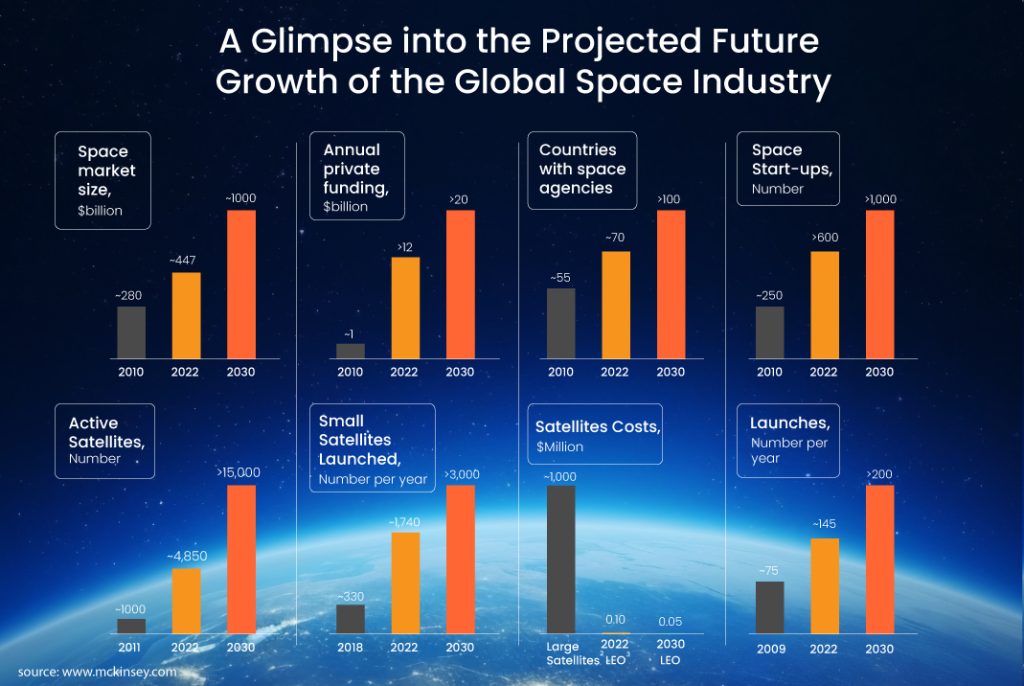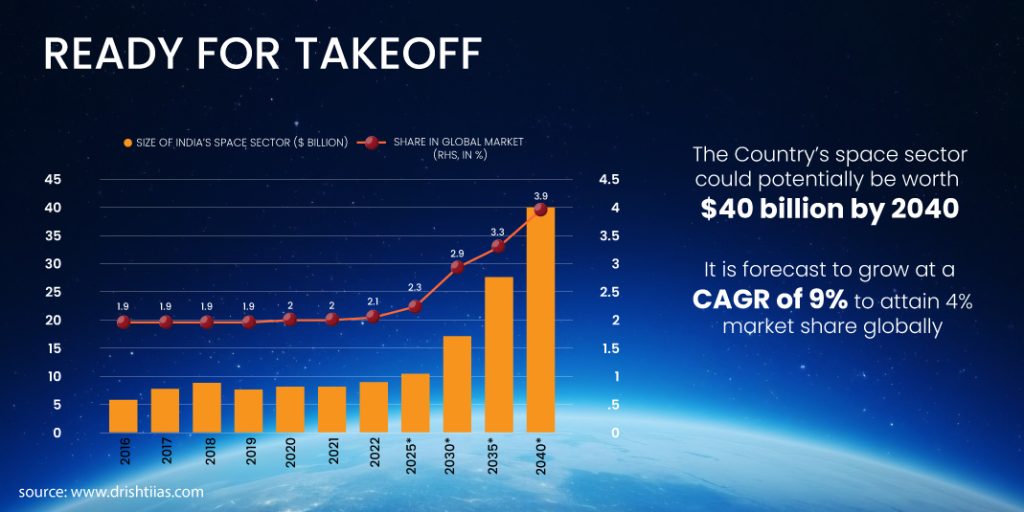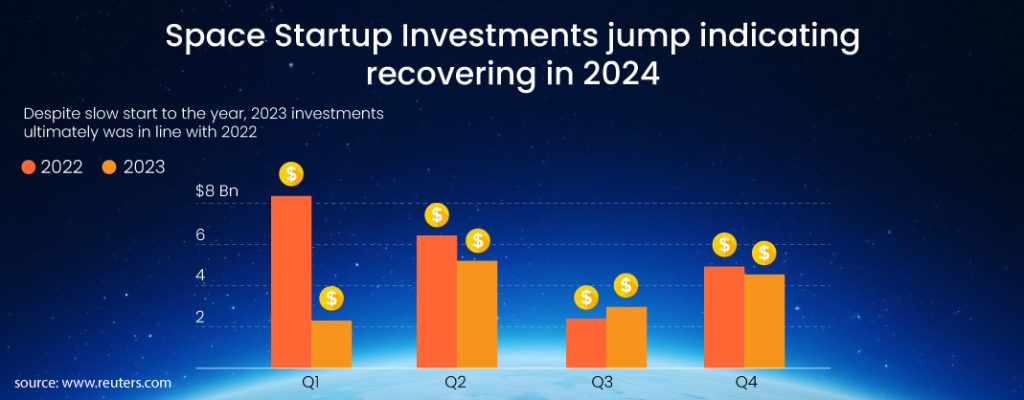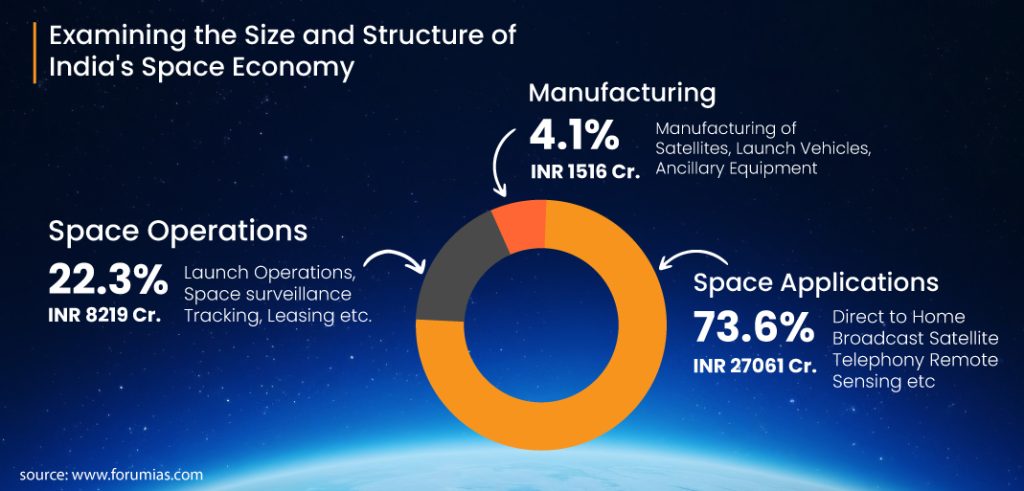Sky’s the Limit: India’s Space Economy Now Open to 100% FDI and Poised for 5X Growth
The space industry has sparked significant interest from economies across the globe, drawing the attention of governments and the private sector.
The Indian government’s latest amendment to the Foreign Direct Investment (FDI) policy, opens up the space sector to 100% foreign investments.
With the updated FDI policy, investment avenues broaden for the space sector, attracting global players and private companies to invest in India’s space ventures. The proposed reform will augment space capabilities and be a significant impetus for India’s flourishing space economy.
India’s spacetech startup landscape has come a long way backed by the nation’s liberalised space economy rules and actively supported by ISRO's space programs. Previously, FDI to the space sector was only allowed through the government approval route. Opening up the space economy to private participation has ushered in innovative spaced-based services.
Globally, the space market has seen substantial advancements, with projections indicating a rise to $1 trillion by 2030.

A few months ago, the ‘billionaire space race’ created quite a buzz. Elon Musk's SpaceX company launched more than 4,500 Starlink satellites in five years, accounting for over 50% of all active satellites orbiting the Earth. More recently, Jeff Bezos, the founder of the online retail giant Amazon, launched two prototype satellites for a broadband mega-constellation called Project Kuiper. This space rivalry could potentially have far-reaching implications for all of humanity. It may even lead up to the era of the "golden age of space exploration".
Whether it is performing experiments in microgravity, launching fleets of new satellites, or achieving sustainability goals—space innovation has emerged as a new frontier for businesses across the globe.
It’s safe to say that India's indigenous technology, combined with systematic service rollout, has catapulted the country to the forefront of the global spacetech race.
The Indian space economy is slated for accelerated growth
Space is increasingly becoming a potential source of value for businesses across industries, like pharmaceuticals, agriculture, consumer goods, and tourism. Satellite constellations are being used for easy and secure communications, tracking data on climate change, helping farmers with crop yields, and even processing credit card transactions. The launch of constellation satellites in middle-earth and low-earth orbits will position India as a leader in the space business economy. Space-based communication will also be a vital strategy for bridging the digital divide in India.
With a 2% share in the global space economy, India’s space industry is currently valued at $8 billion. In the last two decades, India has become the preferred destination for satellite launches having deployed 381 satellites for 34 countries, earning $279 million in revenues.
The Chandrayaan-3 mission and other notable ISRO achievements have not only marked a pivotal moment in India’s space exploration initiatives but have also inspired a new generation of space enthusiasts and entrepreneurs. India's ambitious strides in space exploration point towards a projected space economy of $40 billion by 2040.

Considering the past resource challenges in the space sector, nearly 70% of the resources are expected to come from the non-government sector. In a bid to meet the demand of the new space age, we are also witnessing the rise of an ecosystem of space startups in the country.
India is now a growing hub for space-tech startups
Globally, investments in space startups soared by 31% in the last quarter, with the funding in space companies increasing to $4.6 billion, taking the total for 2023 to $17.9 billion.

Data is a key area of focus for most companies planning their space strategy over the next five to ten years.
With the help of remote-sensing satellites, the creative uses of data will guide business decisions. Whether it's assessing urban sprawl and population density dynamics to tracking deforestation rates in tropical rainforests—the innovative applications of space-derived data are plentiful.
Today, entrepreneurs in India are venturing into a range of niches within the space industry. Consequently, the space startup ecosystem in India has gained momentum with over 100 startups contributing to space exploration, satellite technology, and more.
What’s interesting is that FinTechs are joining the booming space economy.
Owing to the low-cost, high-coverage capabilities of satellite communications, spacetech has emerged as a new area of exploration for delivering next-generation financial services.
Applications of satellite data in risk assessment, investment evaluations, and real-time asset as well as portfolio monitoring are gaining prominence.
Space and beyond: Embracing unimagined economic opportunities
Recent technological advances have made it much easier and less expensive for businesses in India to venture into space and conduct missions. An overall investment of $22 billion in the next 10 years will be crucial for achieving the projected fivefold growth and strengthening the nation’s space-to-earth economy.

Moreover, the increase in market demand for geospatial data coupled with the government’s timely interventions for the inclusion of private players in the space segment—will further promote the growth and development of the Indian space sector.
Think Working Capital… Think CredAble!
